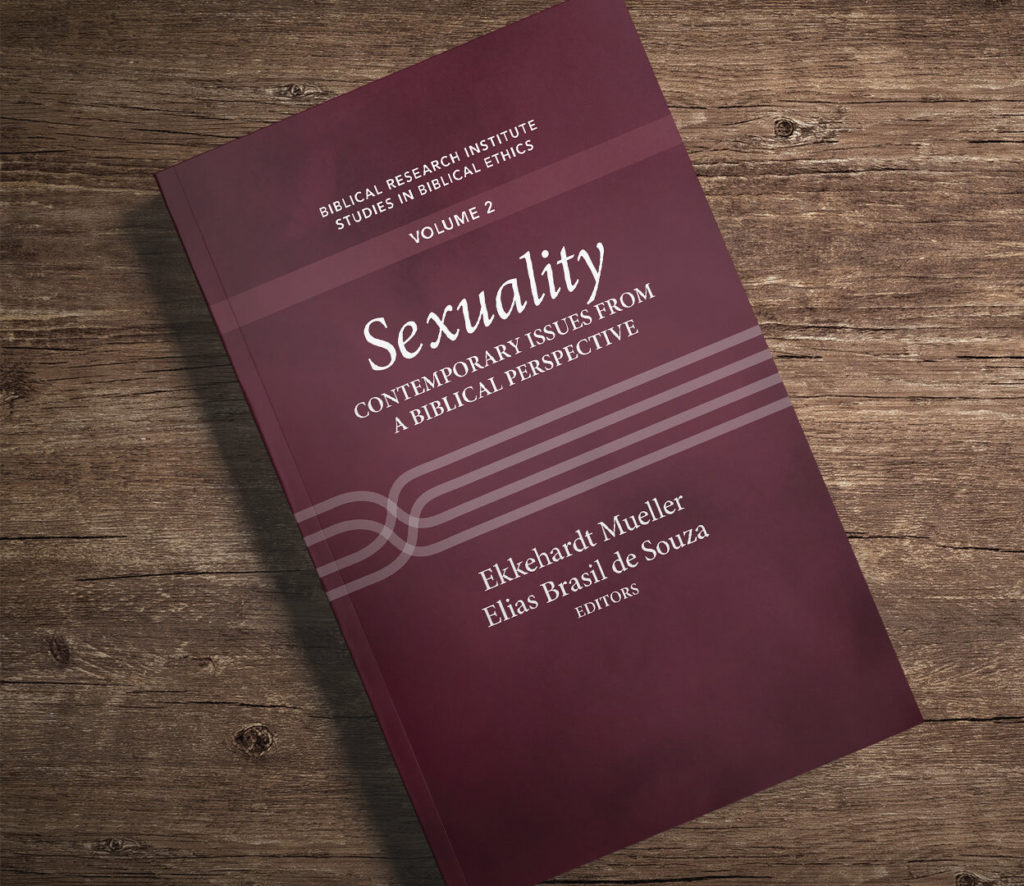
Recent U.S. Supreme Court decisions have brought back to the forefront many issues involving sexuality, including abortion, same-sex marriages, gender identity, and contraception, to name a few. All of these topics and many more are dealt with in an engaging way from a biblical perspective in a recent and timely publication, Sexuality: Contemporary Issues From a Biblical Perspective, published in 2022 by the Biblical Research Institute. Volume 2 of a three-volume series on Marriage, Sexuality, and the Family, this book’s international flavor is reflected by its 22 authors who, similar to those who had contributed to the first volume, represent a wide variety of specialties and come from diverse backgrounds.
The early chapters deal with such foundational questions as What is human sexuality? What constitutes sexual immorality? What about premarital sex, living together outside of marriage, having a mistress, and polygamy? Many other practical issues are dealt with quite explicitly, including: sexual addiction, prostitution, rape, female genital mutilation, abortion, child sexual abuse, queer theology, homosexuality, even cybersex and robotic sex. Readers will learn much from a perusal of the volume, perhaps feeling at times they are learning a little too much, such as that some theologians imagine an erotic trinity (pp. 392-394) and even sexualize their relationship with Jesus (pp. 395, 396). Readers may also discover interesting facts, such as the use of spermicides by the ancient Egyptians (p. 282), and details of fetal development from conception to delivery (pp. 304-306). Vital information is also given, such as how to recognize child sexual abuse and what to do about it (pp. 367-373).
Two chapters wrestle with the issue of transgenderism. The first, by Elias Brasil de Souza and Larry Lichtenwalter, surveys modern theological approaches to the topic and cites apparent ancient expressions of transgenderism in Egypt, Canaan, and Mesopotamia, before tackling the topic from a biblical perspective. The second chapter, by Kwabena Donkor, examines gender and sexuality from an Adventist perspective, providing helpful definitions of various LGBTQ+ terms (pp. 490, 491) and evaluating three different Christian “frameworks” or lenses through which transgenderism has been viewed (integrity, disability, diversity), before suggesting a “great controversy framework” as the best way to understand and help transgender individuals relate to their sexuality in terms of God’s grace and the biblical hope of ultimate restoration to God’s ideal in eternity. Unfortunately, of the two chapters, sex-reassignment surgery is mentioned only briefly by Donkor (p. 509) and could have been helpfully explored in far greater detail. As the first chapter points out, Genesis 1 defines human beings (and animals) in physical and sexual terms, “male and female” (p. 8).
Fittingly, perhaps, the book concludes with one of the most engaging topics of all, “The Seduction of Forbidden Intimacy,” by Alberto Timm. He points out that fully 90 percent of men and 61 percent of women fantasize about having sexual encounters with people they meet (p. 545). Lessons are drawn from three cases of forbidden intimacy described in Scripture, and eight helpful principles presented to help people “build strong affair-resistant relationships” (pp. 555-560). Rounding out the book’s 20 chapters is an appendix that helpfully draws together 16 documents produced by the church from 1987 to 2019 related to the issues addressed in the volume.
In this brief review it is impossible to really capture how important this book is for Christians living in our highly sexualized age, in which even children are confronted with the possibility of choosing a gender other than the one they were given at birth. Some readers will wish that a wider range of perspectives would be represented on such diverse issues, while others will welcome the clear, biblical, and ethical reasoning the various authors display as they tackle these difficult topics that reflect different cultural mores and practices in various parts of the globe. Already the first decades of the twenty-first century have shown that not only are these issues not going away; because of the interconnectivity of our post-postmodern world, they are rapidly spreading geographically, culturally, and even intergenerationally to very young readers. Consequently, this book will be helpful for many—parents, pastors, teachers, and everyone who has been directly affected by the sexual revolutions of the past half century. In fact, one may legitimately ask whether any of us remain untouched by these pressures. Even if the answers may not fully satisfy everyone, readers will be challenged to think through the whys of their beliefs and perhaps even rethink them. Ekkehardt Mueller and Elias Brasil de Souza are to be commended for bringing us a resource that will help readers understand better how to relate to societal pressures in the light of God’s Word.